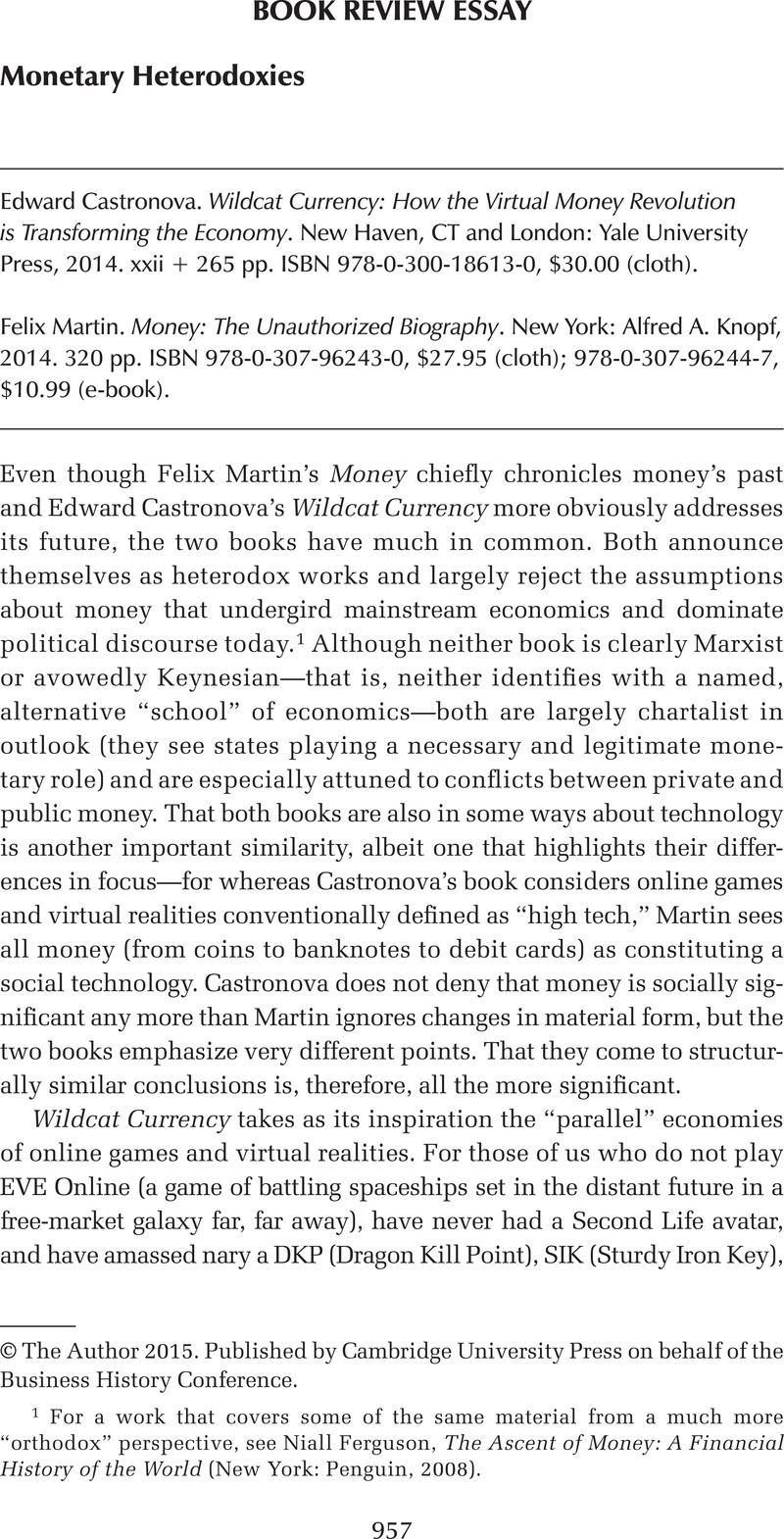No CrossRef data available.
Article contents
Monetary Heterodoxies - Edward Castronova. Wildcat Currency: How the Virtual Money Revolution is Transforming the Economy. New Haven, CT and London: Yale University Press, 2014. xxii + 265 pp. ISBN 978-0-300-18613-0, $30.00 (cloth). - Felix Martin. Money: The Unauthorized Biography. New York: Alfred A. Knopf, 2014. 320 pp. ISBN 978-0-307-96243-0, $27.95 (cloth); 978-0-307-96244-7, $10.99 (e-book).
Review products
Published online by Cambridge University Press: 15 September 2015
Abstract

- Type
- Book Review Essay
- Information
- Copyright
- Copyright © The Author 2015. Published by Cambridge University Press on behalf of the Business History Conference. All rights reserved.
References
1 For a work that covers some of the same material from a much more “orthodox” perspective, see Niall Ferguson, The Ascent of Money: A Financial History of the World (New York: Penguin, 2008).
2 The distinction between special purpose and modern money is usually traced to Karl Polanyi, ed., Trade and Market in the Early Empires (Glencoe, IL: Free Press, 1957); it became a key notion in economic anthropology via George Dalton, “Primitive Money,” American Anthropologist 61, no. 1 (1965), 44–65.
3 In this respect, and in its chronological sweep, Martin’s book somewhat recalls the arguments of David Graeber’s Debt, The First 5000 Years (Brooklyn, NY: Melville House, 2011). However, Martin’s presentation of self could not be more different from Graeber’s positioning as anarchist and anthropologist. Trained as an economist, and a partner in Liontrust Asset Management (London), Martin posed for his author’s photo in jacket and tie.
4 Bruno Latour, We Have Never Been Modern, trans. Catherine Porter (Cambridge, MA and London: Harvard University Press, 1993). For Latour, the belief in modernity requires both the sharp temporal division of “ancient” (or “traditional”) from “modern” and the construction–perception of nature and culture as two distinct domains. He refers to the latter as a “purification” that has created two ontologically distinct zones.


